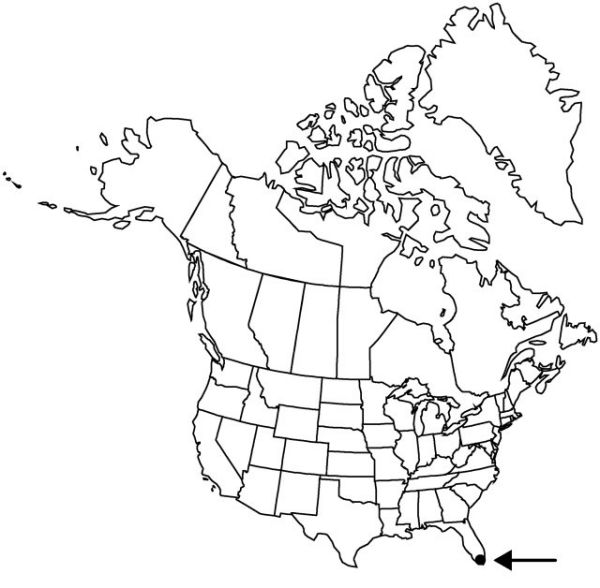Dioscorea sansibarensis
Bot. Jahrb. Syst. 15: 146. 1892.
Plants tuberous; tubers buried just below soil surface, irregularly lobed, globose. Stems twining counterclockwise, climbing to more than 7 m, terete, grooved, or weakly angled with variable number of longitudinal ridges raised less than 1 mm adaxially, producing axillary bulbils frequently greater than 5 cm diam. in leaf axils. Leaves alternate at basal nodes, opposite distally, 6–27 × 7–42 cm; petiole 6–20 cm, as long as or slightly longer than blade, base clasping, basal lobes stipulate, 1–8 mm wide; blade 7–11-veined, reniform to somewhat deltate, glabrous, margins irregularly 3–5-lobed, apex conspicuously caudate. Staminate inflorescences 1–2(–4) per axil, spicate or terminally paniculate, cymose; cymes subsessile, bearing (1–)2–4 flowers subtended by ovate bracteoles, internodes ca. 1 cm; rachis 20–40 cm, subtended by ovate bracts ca. 1 mm. Pistillate inflorescences 1–3 per axil, to 80 cm, internodes 2–2.5 cm. Staminate flowers: perianth yellowish; tepals in 2 similar whorls, narrowly spreading at anthesis, lanceolate, 3–6 mm; fertile stamens 6 in 2 subequal whorls; anthers less than ½ length of filaments, thecae distinct, not spreading. Pistillate flowers: perianth white with purple veins; tepals as in staminate flowers; staminodes 6, smaller than fertile stamens; style branches irregularly 2-fid. Capsules not reflexed at maturity, longer than wide. Seeds bilaterally winged.
Habitat: Not known to flower in the flora area. Roadsides, hammocks, swamps
Elevation: 0 m
Distribution

Introduced; Fla., tropical Africa.
Discussion
Dioscorea sansibarensis, an ornamental species native to tropical Africa, is widely cultivated for its large, unusually shaped leaves. It has recently been reported growing amongst native vegetation in Miami-Dade and Collier counties in southern Florida. Axillary bulbils shed from mature plants were observed to be growing vigorously. Both the tubers and axillary bulbils of this species are toxic.
Selected References
None.